Filter by
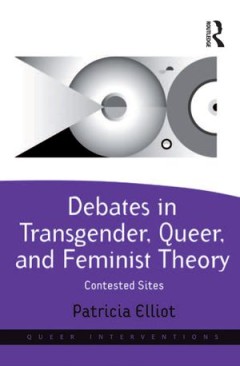
Debates in Transgender, Queer, and Feminist Theory Contested Sites
Transgender studies is a heterogeneous site of debate that is marked by tensions, border wars, and rifts both within the field and among feminist and queer theorists. Intersecting the domains of women’s studies, sexuality, gender and transgender studies, Debates in Transgender, Queer, and Feminist Theory provides a critical analysis of key texts and theories, engaging in a dialogue with promi…
- Edition
- -
- ISBN/ISSN
- 9781409403937
- Collation
- -
- Series Title
- -
- Call Number
- -

Being and Hearing : Making Intelligible Worlds in Deaf Kathmandu
How do deaf people in different societies perceive and conceive the world around them? Drawing on four years of anthropological fieldwork in Nepali deaf communities, Being and Hearing shows how questions of cultural difference are profoundly shaped by local habits of perception. Beginning with the premise that philosophy and cultural intuition are separated only by genre and pedigree, Peter Gra…
- Edition
- -
- ISBN/ISSN
- 978-0-9991570-3-9
- Collation
- -
- Series Title
- -
- Call Number
- 305.908 2 GRA b
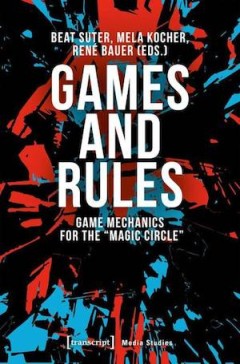
Games and Rules Game Mechanics for the »Magic Circle«
Why do we play games and why do we play them on computers? The contributors of »Games and Rules« take a closer look at the core of each game and the motivational system that is the game mechanics. Games are control circuits that organize the game world with their (joint) players and establish motivations in a dedicated space, a »Magic Circle«, whereas game mechanics are constructs o…
- Edition
- -
- ISBN/ISSN
- 9783837643046
- Collation
- -
- Series Title
- -
- Call Number
- -
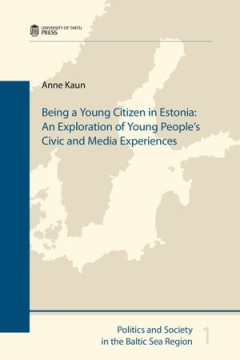
Being a Young Citizen in Estonia : An Exploration of Young People’s Civic a…
The book gives an intriguing insight into how young people in Estonia, twenty years after the establishment of democracy, perceive their own role as citizens. It does so in a theoretical framework that stresses the embeddedness of the civic experiences in a media-dominated environment, thus closely linking civic and media experiences. Based on the analysis of both qualitative interview data and…
- Edition
- -
- ISBN/ISSN
- 978–9949–32–275–6
- Collation
- -
- Series Title
- Politics and Society in the Baltic Sea Region 1
- Call Number
- 323.352 KAU b

Before Kukulkán : Bioarchaeology of Maya Life, Death, and Identity at Classi…
This volume illuminates human lifeways in the northern Maya lowlands prior to the rise of Chichén Itzá. This period and area have been poorly understood on their own terms, obscured by scholarly focus on the central lowland Maya kingdoms. "Before Kukulkán" is anchored in three decades of interdisciplinary research at the Classic Maya capital of Yaxuná, located at a contentious crossroads of…
- Edition
- -
- ISBN/ISSN
- 978-0-8165-3264-3
- Collation
- -
- Series Title
- -
- Call Number
- 305.897 BEF
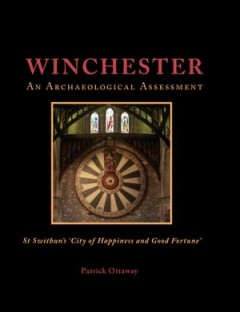
Winchester: An Archaeological Assessment Swithun's 'City of Happiness and Go…
This critical assessment of the archaeology of the historic city of Winchester and its immediate environs from earliest times to the present day is the first published comprehensive review of the archaeological resource for the city, which as seen many major programmes of archaeological investigation. There is evidence for activity and occupation in the Winchester area from the Palaeolithic per…
- Edition
- -
- ISBN/ISSN
- 9781789258943
- Collation
- -
- Series Title
- -
- Call Number
- -

Before and After Gender : Sexual Mythologies of Everyday Life
Written in the early 1970s amidst widespread debate over the causes of gender inequality, Marilyn Strathern's Before and After Gender was intended as a widely accessible analysis of gender as a powerful cultural code and sex as a defining mythology. But when the series for which it was written unexpectedly folded, the manuscript went into storage, where it remained for more than four decades. T…
- Edition
- -
- ISBN/ISSN
- 978-0-9861325-3-7
- Collation
- -
- Series Title
- -
- Call Number
- 305.3 STR b

The Medieval Kirk, Cemetery and Hospice at Kirk Ness, North Berwick
Between 1999-2006 Addyman Archaeology carried out extensive archaeological excavations on the peninsular site of Kirk Ness, North Berwick, during the building, landscaping and extension of the Scottish Seabird Centre. This book presents the results of these works but its scope is much broader. Against the background of important new discoveries made at the site it brings together and re-examine…
- Edition
- -
- ISBN/ISSN
- 9780000000906
- Collation
- -
- Series Title
- -
- Call Number
- -
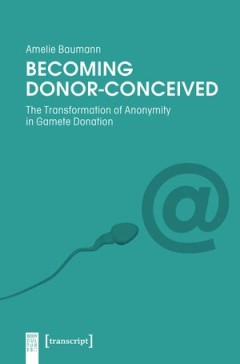
Becoming Donor-Conceived : The Transformation of Anonymity in Gamete Donation
While it has been argued that anonymity in gamete donation has been brought to an end by legal changes and technological developments, Amelie Baumann suggests that this is in fact still in transformation. By focusing on the narratives of those who were conceived with anonymously donated gametes in the UK and Germany, she examines this transformative process and the role which donor-conceived pe…
- Edition
- -
- ISBN/ISSN
- 978-3-8394-5731-3
- Collation
- -
- Series Title
- -
- Call Number
- 571.845 BAU b
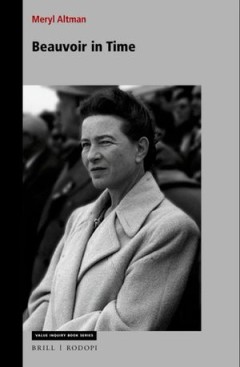
Beauvoir in Time
Beauvoir in Time situates Simone de Beauvoir's The Second Sex in the historical context of its writing and in later contexts of its international reception, from then till now. The book takes up three aspects of Beauvoir's work more recent feminists find embarrassing: "bad sex," "dated" views about lesbians, and intersections with race and class. Through close reading of Beauvoir's writing in m…
- Edition
- -
- ISBN/ISSN
- 978-90-04-43121-8
- Collation
- -
- Series Title
- Value Inquiry Book Series : Value Inquiry Book Series volume 348
- Call Number
- -
 Computer Science, Information & General Works
Computer Science, Information & General Works  Philosophy & Psychology
Philosophy & Psychology  Religion
Religion  Social Sciences
Social Sciences  Language
Language  Pure Science
Pure Science  Applied Sciences
Applied Sciences  Art & Recreation
Art & Recreation  Literature
Literature  History & Geography
History & Geography